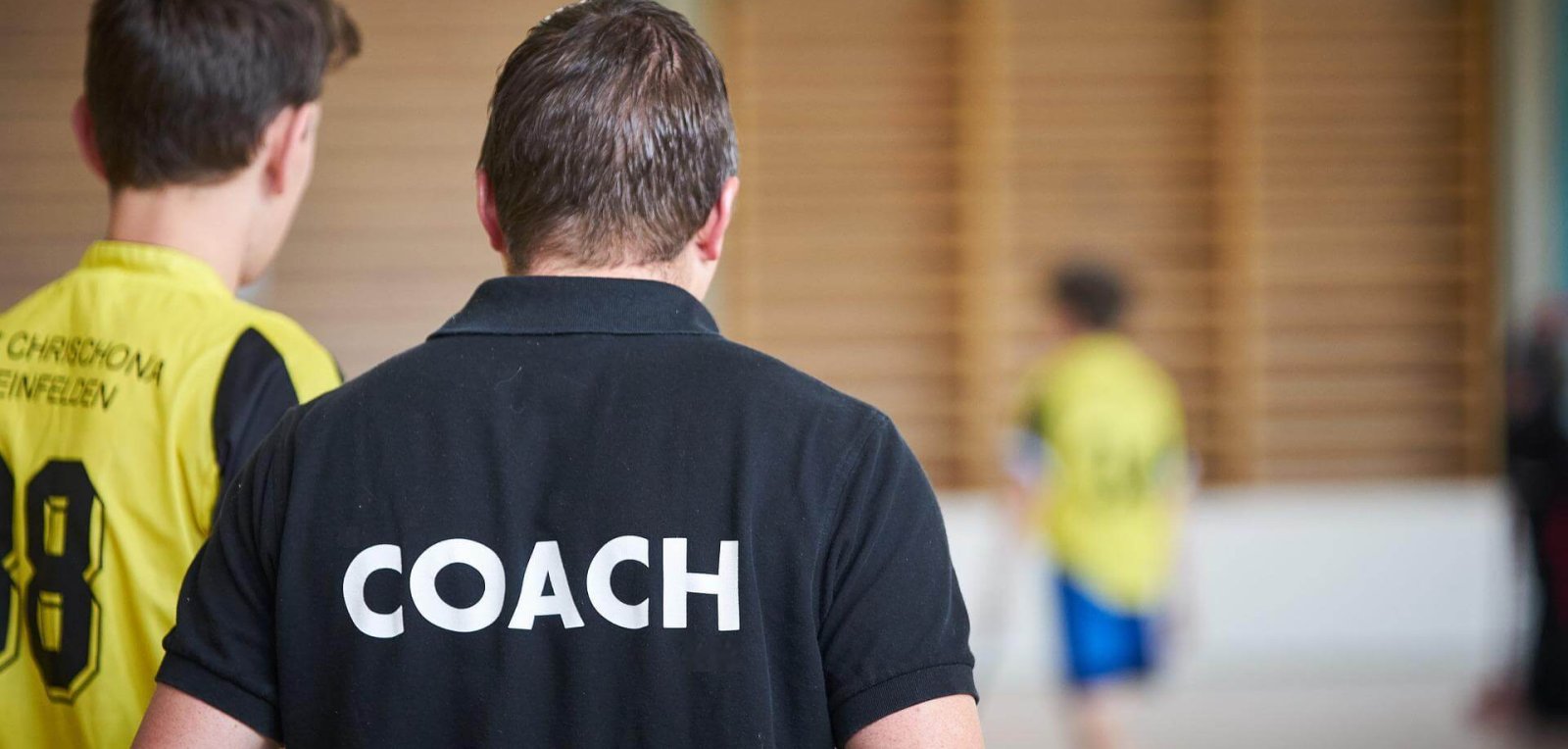Not sure what a language coach is and if it’s what you need? We’ll tell you everything you need to know about language coaching in this article.
First off, what is a language coach?
A language coach is someone who helps a language learner reach concrete, personal language-related goals through professional know-how and by supporting them on their journey to fluency.
Their role is similar to other types of coaches and trainers. Picture a personal trainer who’s helping someone lose weight after plateauing or giving up on getting in shape. The trainer will aid their client using their expertise, keeping them accountable for their progress, and helping them overcome obstacles that might’ve been overwhelming in the past.
Much like a personal trainer, a language coach will support you in your journey to fluency, keeping you accountable for your daily work, motivating you along the way, and making sure you’re on track to reach your personal goals.
If you’re learning a language on your own, language coaching can help greatly in several ways:
- It usually doesn’t follow a pre-made study structure based on a book, but rather covers things that interest you, keeping you constantly engaged.
- Language coaches design sessions based on your personal fluency goals in mind, and create a specific program to help you reach them.
- They also hold you accountable for your progress, making sure you feel responsible for reaching your key milestones.
- Finally, language coaches make sure to keep you motivated, helping you traverse an otherwise solo language learning journey.
If you’re sold on the idea of working with a language coach, make sure to check out our Live Coaching program, which gives you free access to the Fluent Forever app. If you’re interested in knowing more about them, keep reading!
Language coaching vs. language teaching
So, is a language coach the same as a language teacher? Not really. There are several differences between language teaching and language coaching. Let’s take a look at them, starting with the former:
Language teaching:
- Follows a specific study program based on a book, guide, or existing course
- Works on reaching an existing, predefined fluency goal
- Covers subjects and exercises from the study program and its literature
- Although there are private language teachers, they usually work with groups or classes
Language coaching:
- Covers subjects you’re interested in, creating personalized exercises built around your hobbies and passions
- Creates specific study sessions based on your personal fluency goals and interests
- Although there are group-based language coaches, they usually work one-on-one
It’s worth noting that the term linguistic coach is often heard together with these two. A linguistic coach is just another way of referring to a language coach.
How do you work with a language coach?
Now that we’ve defined what a language coach is, how do you work with one to progress to fluency? Let’s consider what that would look like for a Spanish language learner.
Imagine you’ve been trying to learn Spanish on your own for years now, but you keep getting sidetracked with other projects and make little progress. Because you’re not getting anywhere, you decide that it’s time to get some coaching.
First, you search and choose someone who might be a good fit – this can mean choosing someone based on their expertise, curriculum, interests, etc. Additionally, you choose a schedule that works for both of you, say, once a week.
Secondly, together, you set attainable, time-bound goals to work towards. For example, you might want to pass a Spanish test, write a love letter to your significant other in their native tongue, or prepare for a trip to Mexico. During this stage, you and your coach will set a personal fluency goal to reach.
Image by Mediamodifier from Pixabay
At the same time, your coach is getting to know what you like and are passionate about, and will use this to create engaging sessions you’ll find interesting and fun. This way, you will spend your weekly sessions talking about your paella obsession and interest in Mayan culture, not on obscure language exercises from a book.
Lastly, with your coach’s support and expertise, you’ll work to reach your personal linguistic goals while being kept accountable for your progress by your language companion. A roadmap to success!
Do you need a language coach?
After reading all of this, you’re probably wondering: Do I need a language coach? Generally, a language coach is a good match if you:
- Lack the self-motivation to stay on track
- Need someone to help you on your language learning journey
- Feel nervous about talking with native speakers
- Have tried different methods but seen little results
- Find regular language classes tedious and unengaging
Working with a language coach will reap different benefits depending on your level. Let’s look at how it can help you progress if you are an absolute beginner, a beginner with some knowledge, or if you’ve reached intermediate and advanced levels.
Absolute beginner
This is where you know absolutely nothing about the language you’re trying to learn. You’re starting from scratch – you know zero words in your target language, and everything seems overwhelming.
Your coach will talk to you in that language, so it’ll be hard to take full advantage of them. You can, however, use them as an accountability partner in your work with other language methods, say, the Fluent Forever app.
At this level, your coach will be more like a friend who’ll help you stay motivated at the beginning of your journey. The benefit here is that you’ll be able to hear the words you learn pronounced by an actual native.
Beginner with some knowledge of the language
This is where you know several words in your target language, but you find constructing sentences rather intimidating. You are, however, willing to take on that challenge.
Working with a language coach at this level will help you discover, through some nifty deduction, how to construct sentences. You can work with your coach, talk about words you know, and build sentences with them.
Because you already know some words, you can use your sessions to ask your coach how to make sentences with said words and, through this process, boost your grammar knowledge.
Intermediate
At this level, you are able to hold simple conversations and construct sentences. You do, however, make mistakes every now and then. This is where your coach comes to the rescue.
Here, your coach will help correct and improve what you already know. You’ll be able to boost your confidence and get direct, one-on-one support to fix common errors you make. You’ll still discover new words and structures as in the previous level, but not as often. You will, however, hold longer and more engaging conversations, which will make the coaching sessions more interactive.
Advanced
At this point, you’re able to hold conversations with natives, albeit with small mistakes here and there. Regardless, you’re able to get your point across and feel confident overall in your ability to communicate in your target language.
If you’re an advanced-level learner, you can engage a language coach to practice your conversational skills in specific situations or topics. The role of a coach at this top level is to perfect minor details in your pronunciation, or indeed, to help you prepare for a specific, more advanced personal project.
Bonus: Coaching tips from Gabe
Fluent Forever founder Gabe Wyner has some essential tips on how to choose a coach and make sure that relationship is as effective as possible. Check them out below:
For me, language learning is a memory challenge above all else. As such, when I look for a language coach, I want someone who can help me build memories that are relevant to me, and are as sticky as possible. That means I’m looking for someone who has the following three skills:
Skill 1: Keep the content relevant to me
My coach should ask me about my interests within our first couple of sessions, and we should stick to talking about those interests as much as possible. There are effectively infinite topics that a coach can talk about, and most of those topics just aren’t going to be relevant to your interests.
Suppose you’re learning Italian so that you can travel to the Artemio Franchi soccer stadium in Florence, cheer wildly, and eat lots of pasta all day. In that scenario, it is a waste of effort and time to chat with your coach about clothing vocabulary, or professions, or even to learn verb tenses like the passato remoto, which generally only show up in books. You need soccer and food vocab, and soccer and food grammar. Your coach needs to be able to keep you talking about your interests continuously, or else you’re wasting time on irrelevant content.
Skill 2: Keep the content about me
If my coach is able to keep the content about me, I’ll learn twice as fast, compared with content that’s more general. If we talk about a new verb, I want a coach who can help me build an example sentence for that verb that’s about my own life. If we’re learning restaurant vocabulary, I want my coach to ask me what I would order.
That’s not to say that a coach can never talk about their own lives. But on average, they should be able to bounce the conversation back to me as much as possible because that’s going to keep the content as relevant as possible, and it’s going to double the stickiness.
Skill 3: Push me to stay in my target language
The moment I try to talk about a topic and I don’t know the words for it, I’m going to have two options:
One, I can jump to English. If I do that, I’m depriving myself of a learning opportunity, and when I’m with a coach, I want someone who can remind me of that by gently pushing me back into the target language. It’s okay if they help me translate a word or two that I’m missing, but I want them to ask me to actually say the sentence I wanted to say with the new words I just learned, rather than just letting me blab away 50% in English.
If I manage to resist jumping to English, I’m going to learn the fastest. But I need my coach to encourage that by having patience with me and allowing me to take the time to really work out – on my own – how best to get my thoughts across when I’m struggling with a limited vocabulary set. You want someone who’s happy to have long conversations about very little:
“Yesterday, I went to the…um…you know that place where you buy things?”
“A store?”
“No, you buy um…bananas”
“A fruit stand?”
“You can buy bananas and paper towels”
“A supermarket?”
“Yeah!”
Long conversations like these take way more patience than someone who tells you, “Just say it in English and I’ll translate.” And that’s exactly the type of patience you need if you’re going to lean on this person to help you learn as quickly as possible.
How do you assess whether a language coach has these three skills? Start by asking about the above three skills in advance, using open-ended questions like these:
So, how do you assess whether a language coach has these three skills? Start by asking about the above three skills in advance, using open-ended questions like these:
- How do you figure out what topics to cover?
- Where do you get your examples for vocab and grammar topics?
- Tell me what you usually do when a student doesn’t have the right word for something?
- How often do you use English in your lessons?
If you get answers that indicate that your prospective coach likes to cover topics based on what their student is interested in, that they collaborate with the student to create relevant examples for each new piece of information, and that they use as little English as possible, then you’re in good hands.
If not, chat with them further about whether they’re comfortable adapting their teaching style to match your needs. I’ve found that, more often than not, I can guide a coach into becoming exactly the kind of coach I need them to be, as long as I keep the above three skills in mind when I’m going through my first few lessons.
If you’ve ever struggled with motivation or long-term retention in language learning, do try out language coaching, as it can mean the difference between casually flirting with a language and truly reaching fluency.
Finding the right language coach for you
So, are you ready to start working with a language coach? There are different types and levels of language coaches, so you need to consider your needs and determine what works best.
If you’re looking for something more informal, you can try finding a language exchange partner online, especially on social media. Although they might not have any linguistic coaching experience, the fact that they’re a native speaker and into language learning is already a plus! This is also a free alternative to a service that usually incurs a cost.
Do you work at a company? There are certified corporate language coaches who work with businesses to help their employees learn or improve a new language. These options can be rather expensive, but your job might pay for it, considering how valuable bilingual and multilingual employees can be.
You can also try Fluent Forever’s Live Coaching, where you can get coaching in any of these 6 languages: Spanish (Latin American and Castilian), French, Italian, Japanese, German, and Mandarin (with Russian, Korean, Dutch, Portuguese, and English coming soon).
As we mentioned earlier, by signing up you also get unlimited access to our language learning app, which is based on our groundbreaking methodology that allows you to learn a new language and never forget it.
You’re also able to incorporate the phrases you learn during your coaching sessions into your in-app experience. That way, you’re able to practice what you and your coach talked about anytime that suits you.
Plus, Fluent Forever’s coaches are 100% native speakers and trained in the same methodology our app is based on. Lastly, the sessions are flexible and adjustable to your time availability. It can’t get more personalized than this.
And there it is! All you need to know about what a language coach is and how to work with one to reach your fluency goals!





